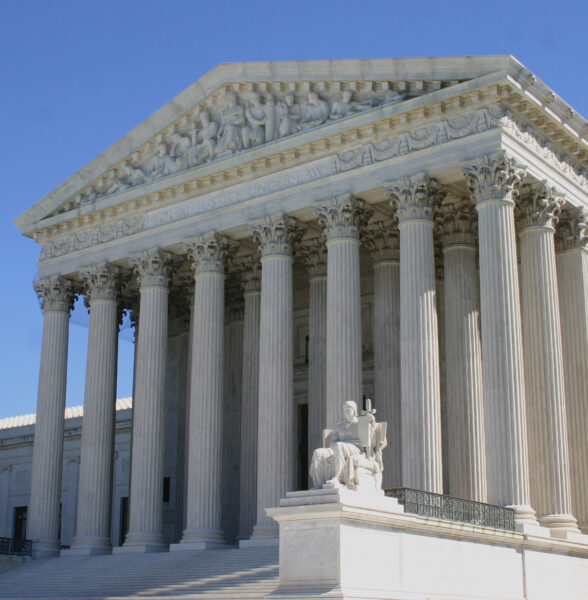
U.S. Supreme Court (Photo: David)
The U.S. Supreme Court heard arguments Wednesday in Bufkin v. McDonough, a case challenging how the Veterans Court applies the “benefit of the doubt” rule in disability claims, with potential implications for thousands of Veterans’ benefit decisions.
At the heart of the case is the argument that the VA and the Veterans Court are not adequately upholding the legal standard that requires favoring Veterans when evidence is equally for and against a claim. The plaintiffs, Air Force Veteran Joshua Bufkin and Army Veteran Norman Thornton, argue that their claims were repeatedly denied without a fair application of this rule, even though evidence was conflicting.
The Veterans Court was established in 1988 to provide a judicial review of VA decisions. In 2002, Congress clarified the Court’s duty to ensure the benefit of the doubt is given to Veterans in close cases. Under this rule, if evidence is equally balanced, the decision should favor the Veteran. Bufkin and Thornton claim this standard was not applied in their cases, leading to improper denials of their disability claims.
Read our article: SUPREME COURT TO REVIEW VETERANS’ DENIED MEDICAL BENEFITS CASE
Bufkin’s case involves a claim for PTSD related to his service from 2005 to 2006. He contends that he developed PTSD after facing pressure from his wife, who threatened self-harm if he didn’t leave the military, and the Air Force’s response to his situation. His claim was denied based on conflicting medical evaluations: some doctors confirmed PTSD related to his service, while others disagreed. The VA ultimately ruled against him, finding no service connection.
Thornton, who served in the Gulf War, received a 50% disability rating for PTSD but sought a higher rating based on evidence suggesting a more severe impairment. Despite presenting assessments that supported a 70% rating, his appeal was denied by the VA, which ruled that his symptoms did not meet the higher criteria.
During the Supreme Court session, the justices questioned both sides on how the Veterans Court should evaluate these cases. Melanie Bostwick, attorney for the plaintiffs, argued that the Court is required by law to give Veterans the benefit of the doubt. She states that the 2002 legislation was intended to ensure the Court examines evidence thoroughly before upholding denials. Sopan Joshi, representing the federal government, says the Veterans Court’s role is to review decisions for errors rather than re-evaluate evidence. He argued that requiring the Court to re-assess all evidence would be burdensome and beyond its intended function.
The case raises questions about whether the Veterans Court has been too deferential to the VA, allowing denials to stand without a full benefit-of-the-doubt analysis. Several justices, including Amy Coney Barrett and Clarence Thomas, expressed concern over how a ruling might affect future claims, with Barrett specifically questioning what Thornton would gain if he won, given that he already receives a 100% disability rating through unemployment benefits.
A decision in favor of Bufkin and Thornton could lead to more rigorous reviews by the Veterans Court, potentially altering outcomes for current and past claims. The case is expected to be decided by next summer, and its outcome could reshape how the benefit-of-the-doubt standard is applied in Veterans’ disability claims.












